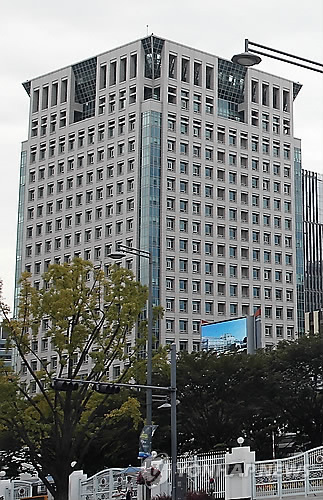Diplomatic activities not subject to anti-graft law: ministry
By 임정요Published : Sept. 25, 2016 - 13:35
Engaging in official diplomatic activities will not be subject to the controversial anti-graft law taking effect this week, the foreign ministry said Sunday.
The ministry released guidelines on honoring the law, commonly called the "Kim Young-ran Law" after the former head of the Anti-Corruption and Civil Rights Commission. People working for the government, media outlets and schools are also banned from receiving meals priced higher than 30,000 won ($27), gifts exceeding 50,000 won, and congratulatory and condolence money over 100,000 won.
It aims to bring more transparency to workers in certain sectors who should maintain higher ethical standards than ordinary citizens. Workplaces and government agencies have been scrambling to determine the exact extent of the law and inform their employees and staffers what they can and can't do starting Sept. 28.

For instance, South Korean diplomats may be treated to meals exceeding 30,000 won by foreign governments. They are still advised to stay within the reasonable range and consult with the government's anti-graft officials before accepting expensive meals.
Also, South Korean diplomats may host their counterparts stationed here to meals over the legal limit because foreign diplomats aren't public officials as defined by the Kim Young-ran law.
South Korean missions overseas may supply traveling South Korean delegates with official vehicles during their stays. The traveling diplomats, however, must pay for any extra vehicle they wish to rent during their stay.
South Korean lawmakers who visit overseas missions to conduct their annual parliamentary audits may not be treated to meals during their stays. Should they eat together with diplomats at the same restaurant, they must pay separately.
Asking foreign ministry officials to quickly issue passports and visas will be against the law, except for emergency or humanitarian reasons.
The ministry worked with the ACRC to come up with the guidelines, hoping the new law won't discourage valid diplomatic activities. (Yonhap)








![[Kim Seong-kon] Democracy and the future of South Korea](http://res.heraldm.com/phpwas/restmb_idxmake.php?idx=644&simg=/content/image/2024/04/16/20240416050802_0.jpg&u=)







![[KH Explains] Hyundai's full hybrid edge to pay off amid slow transition to pure EVs](http://res.heraldm.com/phpwas/restmb_idxmake.php?idx=652&simg=/content/image/2024/04/18/20240418050645_0.jpg&u=20240418181020)

![[Today’s K-pop] Zico drops snippet of collaboration with Jennie](http://res.heraldm.com/phpwas/restmb_idxmake.php?idx=642&simg=/content/image/2024/04/18/20240418050702_0.jpg&u=)